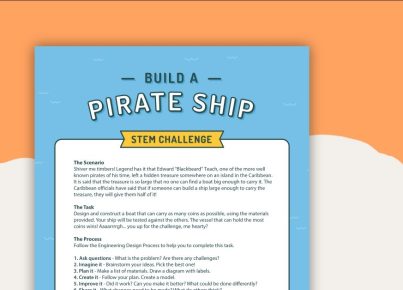Introduction:
The importance of science, technology, engineering, and mathematics (STEM) education cannot be overstated in today’s rapidly evolving world. To ensure long-term success in these fields, it is crucial to introduce STEM concepts to children at an early age. This article will explore the benefits of early exposure to STEM education and share innovative ideas for parents and educators who wish to cultivate an early interest in these subjects.
The Benefits of Early STEM Education:
1. Encouraging Curiosity:
Incorporating STEM activities into a child’s educational experience from an early age fuels their natural curiosity and helps them develop critical thinking skills. Young learners become better equipped to explore the world around them and ask valuable questions about their environment.
2. Building Confidence:
Early exposure to STEM subjects empowers kids to believe that they can excel in these areas, which often leads to increased confidence as they progress through school. This boost in self-esteem can further enhance their motivation and engagement in class.
3. Cultivating a Strong Foundation:
Providing young learners with basic knowledge in subjects like math, science, and engineering sets them up for success later on. As they advance through school, students with strong foundational skills are typically more prepared to tackle complex problems and take on advanced courses.
4. Developing Problem-solving Skills:
Early introduction to STEM concepts nurtures problem-solving abilities by teaching children how to approach difficult tasks with patience, resilience, and creativity. These skills are not only valuable within STEM fields but also transferable to other areas of learning.
Tips for Incorporating STEM Into Early Education:
1. Incorporate everyday activities:
Parents can encourage a love for STEM by incorporating educational activities into daily routines, such as using baking materials for simple math lessons or growing plants as a hands-on biology experience.
2. Use age-appropriate toys and games:
Toys like building blocks, puzzles, or coding robotics teach children the fundamentals of engineering and programming. Combining learning with play allows STEM principles to become naturally embedded in a child’s daily life.
3. Take advantage of educational programs and resources:
Local libraries, museums, and online platforms often provide access to STEM-related events, classes, printable worksheets, or interactive games.
4. Encourage exploration and experimentation:
Help your child develop critical thinking skills by encouraging them to ask questions, investigate problems, or hypothesize potential solutions. Foster a safe environment where it’s okay to make mistakes and learn from them.
Conclusion:
Introducing STEM concepts early on is vital for encouraging children to embrace the challenges and rewards that come with these fields. By integrating hands-on exercises into daily routines and supporting natural problem-solving tendencies, parents and educators can ensure that today’s children are equipped to succeed in the fast-paced world of tomorrow.





